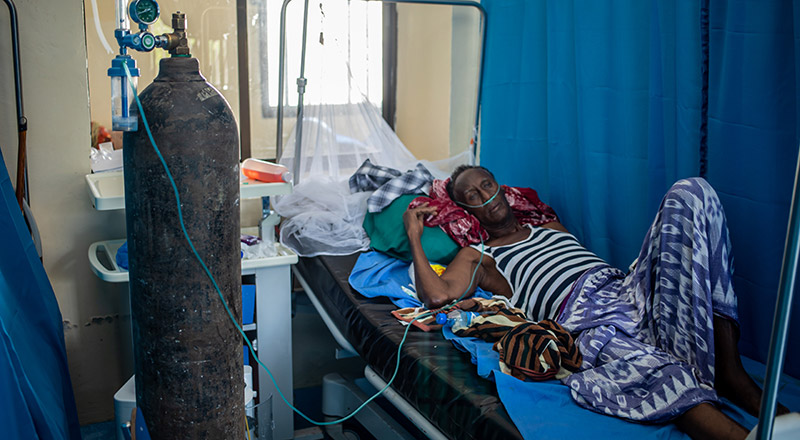
Cairo, 17 November 2021- WHO’s Regional Office for the Eastern Mediterranean conducted a webinar series to enhance the knowledge and skills among frontline health care workers on the most up-to-date recommendations for the clinical management of people with COVID-19 over 3 sessions on 18 and 27 October, and 3 November 2021.
The webinar sessions were designed to meet the needs of the frontline health care workers from multiple disciplines who are directly managing patients with COVID-19 to provide them with the latest WHO guidelines and evidence-based international standards and practices.
“Previously, when we received COVID-19 patients, we used to start antibiotics as empirical therapy. After this webinar, we now know that antibiotics should not be the first-line treatment for COVID-19 patients. We learned that oxygen therapy and other supportive medications should be considered first. In addition, we learned that oxygen-given procedures are also a key in the prognosis of the patient,” said Dr Barkhad Mohamed, a general physician in the COVID-19 isolation and emergency centre, Hargeisa, Somaliland.
Over the 3 sessions, WHO provided updates on WHO guidelines on the management of COVID-19 patients and also, invited regional and international clinical experts to share their protocols and their own experience in managing patients with critical, severe, and non-severe COVID-19. The care of special populations with COVID-19, such as pregnant women, children, and older people, was highlighted and the latest information on the post-COVID condition. WHO stressed the importance of promoting experience-sharing among clinicians in both public and private hospitals, as well as other health care settings.
“Over the past 18 months of COVID-19, we have come across patients who died due to a lack of updated information by health workers about variants, and lack of equipment such as ventilators. We could not classify which variants were causing their severe condition and how severe their situation was. People were dying unnecessarily. After this training by WHO, we learned how to use life-saving equipment such as oxygen cylinders, glucose control, and blood coagulation properly,” said Dr Ayaanle Ahmed Muhamed, Awdal Regional Hospital, Boorama, Somalia.
“The strategic preparedness and response plan in the area of the COVID-19 clinical management plays a crucial role in outlining the overall Organization’s objectives to end the COVID-19 pandemic, as well as assisting national stakeholders with developing a structured approach to their response. We aim to conduct regular sessions to update and strengthen health care providers’ capacity, especially those on the frontlines of the COVID-19 response and provide them with updated information in this area,” said Dr Chiori Kodama, Medical Officer, Infectious Hazard Prevention and Preparedness programme at the WHO’s Regional Office for the Eastern Mediterranean.
Related links
COVID-19 Clinical management: living guidance
Therapeutics and COVID-19: living guideline
Clinical management of COVID-19
A clinical case definition of post-COVID-19 condition by a Delphi consensus








